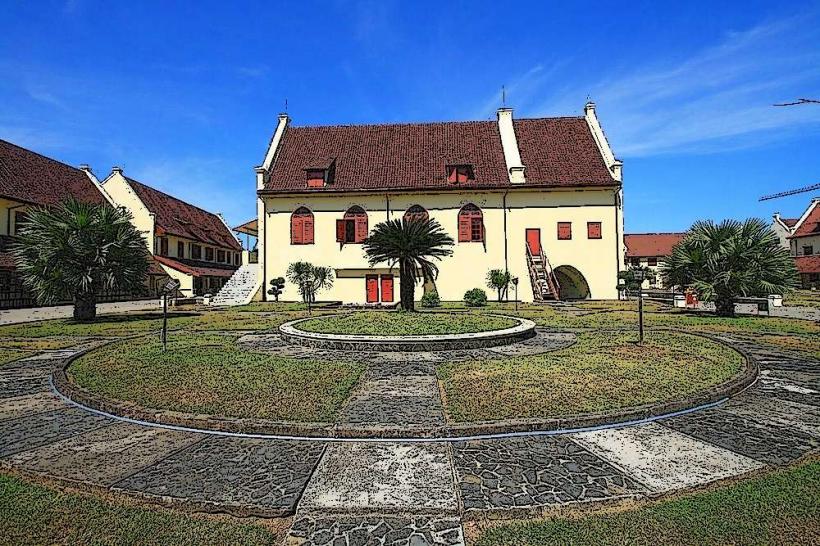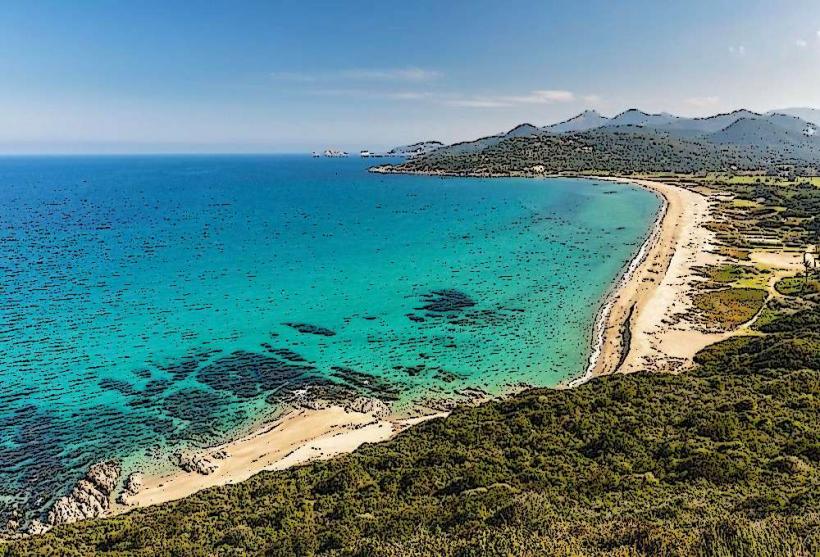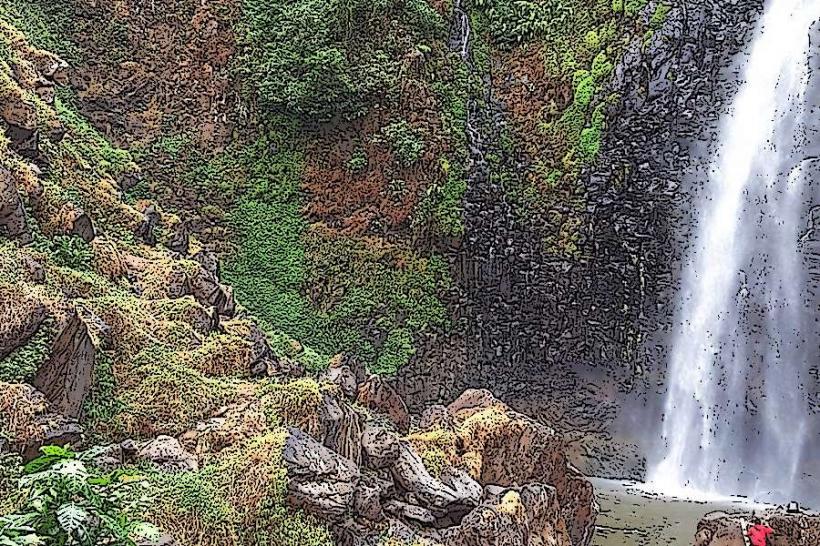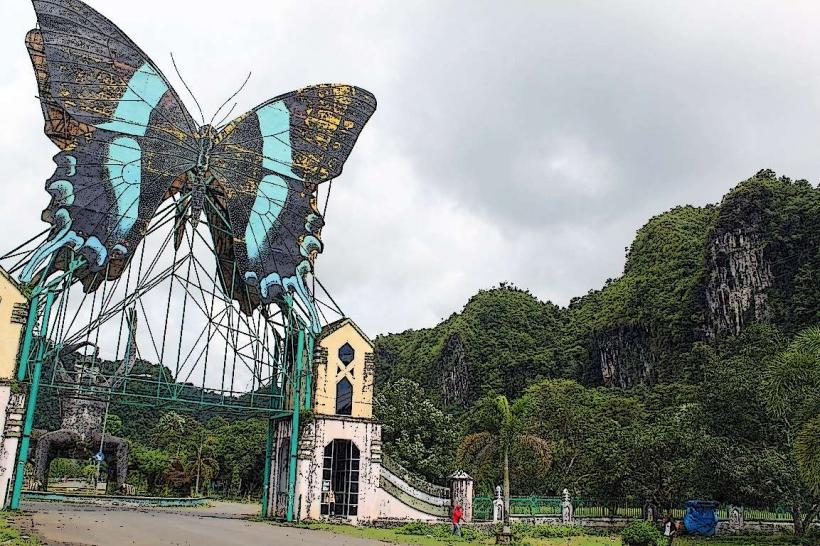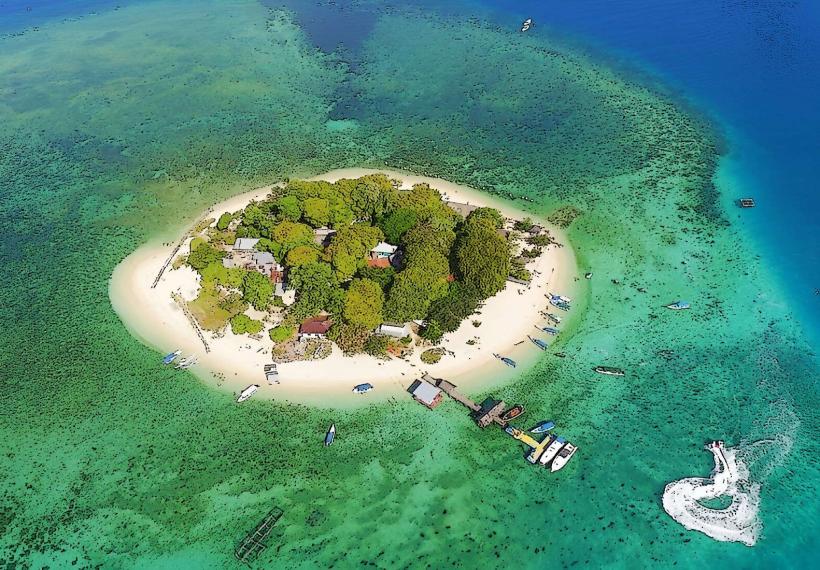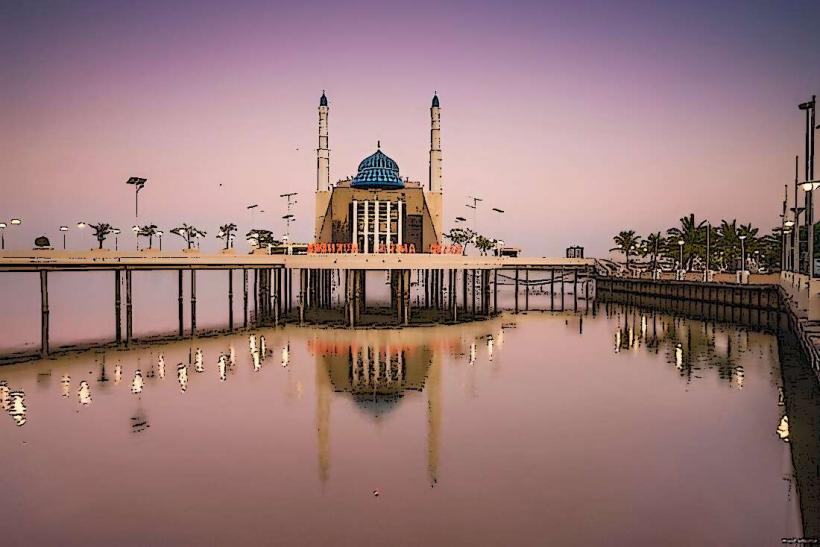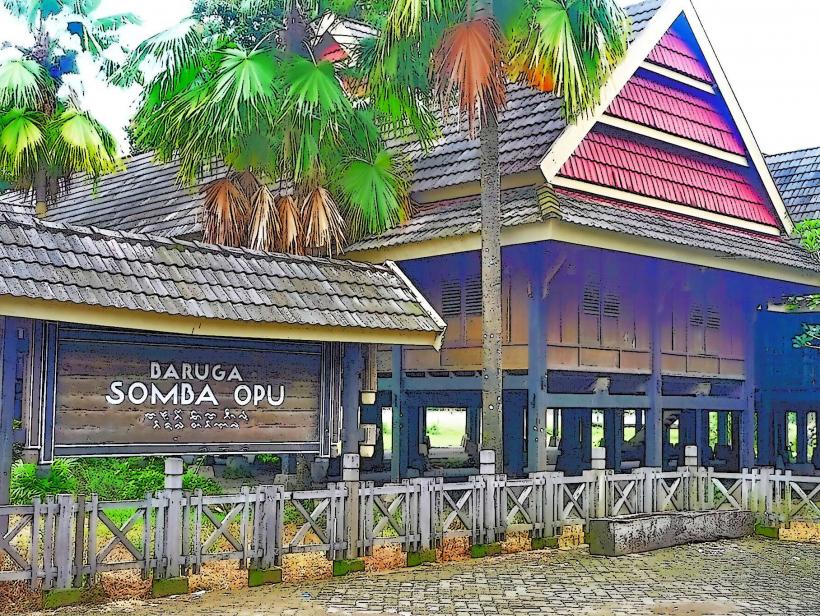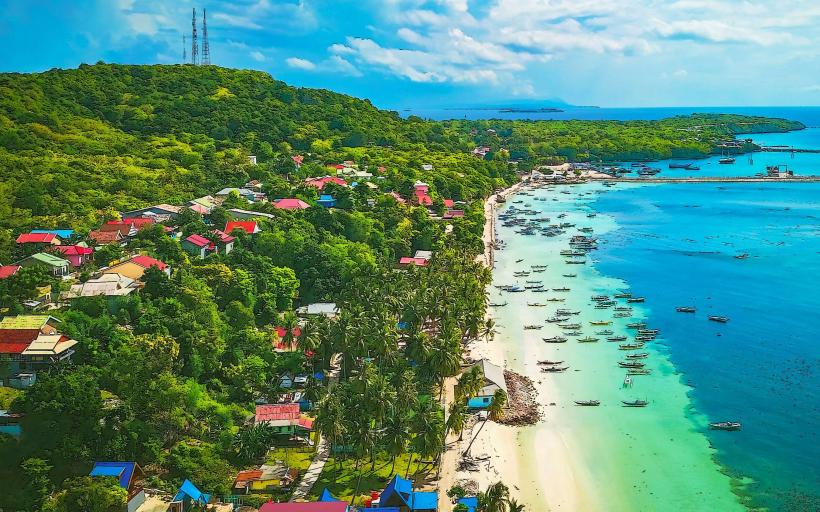Information
Landmark: La Galigo MuseumCity: Makassar
Country: Indonesia
Continent: Asia
La Galigo Museum is a prominent cultural and historical museum located in Makassar, South Sulawesi, Indonesia. The museum is dedicated to showcasing the rich cultural heritage and historical significance of Sulawesi, particularly the Bugis and Makassarese people. The name "La Galigo" is derived from the ancient La Galigo manuscripts, which are considered some of the longest and most important literary works in Southeast Asia, written in the Bugis language and providing valuable insights into the region's history, culture, and mythology.
Key Details about La Galigo Museum:
1. Historical and Cultural Significance
- The La Galigo Museum serves as a repository of the region’s cultural heritage, focusing primarily on the indigenous Bugis, Makassarese, and Toraja peoples, who have a rich history and deep traditions in South Sulawesi.
- The name "La Galigo" refers to the ancient La Galigo epic, an epic literary work in the Bugis language that tells the story of the creation of the world, the history of the Bugis kingdom, and the life of its people. The museum takes inspiration from this epic to preserve and share the cultural traditions of the region.
2. Location and Accessibility
- The La Galigo Museum is located in the city center of Makassar, South Sulawesi, making it easily accessible for both locals and tourists. It is situated in the Sudiang area and is part of a larger cultural complex that includes other important landmarks and sites in the city.
- The museum is easily reachable by car, taxi, or public transportation from other parts of the city.
3. Architectural Design
- The museum's building is a modern structure, designed to blend contemporary architectural styles with traditional Bugis influences. The exterior features ornate carvings and intricate patterns that are representative of the region's cultural heritage.
- The museum's interior is spacious and well-lit, providing an ideal environment for displaying a variety of artifacts, historical items, and cultural objects.
4. Exhibits and Collections
- La Galigo Museum houses a diverse collection of artifacts, artworks, and historical objects that represent the traditions, customs, and life of the people of South Sulawesi. Some of the key exhibits include:
- Traditional Clothing: The museum displays a range of traditional Bugis and Makassarese clothing, including royal attire, ceremonial garments, and everyday clothing that showcase the craftsmanship and cultural significance of clothing in the region.
- Ancient Manuscripts: The museum features exhibits on the La Galigo manuscripts themselves, which are some of the oldest and most important texts in the Bugis language. These manuscripts offer valuable insights into the history, mythology, and spirituality of the Bugis people.
- Weapons and Tools: The museum showcases traditional weapons such as swords, daggers, and spears, as well as farming tools and craftsmanship, which reflect the resourceful nature of the region's inhabitants.
- Artistic Artifacts: Visitors can explore displays of sculptures, wood carvings, and painting that represent the artistic traditions of the Bugis, Makassarese, and Toraja people. These items reflect the region's cultural, religious, and artistic expression.
- Cultural Exhibits: The museum also features exhibits on the cultural practices, rituals, and belief systems of the indigenous peoples of South Sulawesi, including marriage customs, funeral rites, and spiritual beliefs that are unique to the region.
5. Educational Role
- One of the primary goals of the La Galigo Museum is to serve as an educational center for both locals and tourists, offering visitors an in-depth understanding of the cultural richness and historical significance of South Sulawesi.
- The museum organizes educational programs, workshops, and lectures aimed at increasing awareness about the region's history and cultural heritage. It also works to promote the preservation of traditional knowledge, especially the Bugis and Makassarese languages, arts, and customs.
- The museum is also involved in efforts to preserve and digitize the ancient La Galigo manuscripts, ensuring that these valuable texts are accessible for future generations.
6. Visitor Experience
- The La Galigo Museum offers an engaging and immersive experience for visitors, with a combination of interactive displays, audio-visual presentations, and hands-on exhibits. Visitors can learn about the Bugis mythologies, traditional ceremonies, and the La Galigo epic, which are at the heart of the region's cultural identity.
- Guided tours are available at the museum, and local guides provide detailed explanations of the exhibits and the significance of various artifacts, helping visitors understand the deep historical and cultural context of what they are viewing.
- The museum also provides opportunities for visitors to participate in cultural events, such as traditional music performances or dance shows, which give a deeper understanding of the customs and practices of South Sulawesi.
7. Activities for Visitors
- Photography: Visitors can take photographs of the exhibits and artifacts (unless restricted) to capture the beauty of the traditional items and the architectural design of the museum.
- Workshops and Cultural Events: The museum hosts regular cultural workshops, where visitors can learn traditional crafts such as weaving, wood carving, and making Batik. There are also performances of traditional dances and musical concerts to showcase the region's rich artistic heritage.
- Special Exhibitions: The museum periodically organizes temporary exhibitions that focus on specific aspects of South Sulawesi's culture, history, or contemporary art, allowing visitors to explore a variety of themes throughout the year.
8. Best Time to Visit
- The best time to visit La Galigo Museum is during the dry season from May to October, when the weather is more pleasant for outdoor exploration. However, the museum is open year-round, and its climate-controlled interior makes it a comfortable place to visit regardless of the weather outside.
- It is advisable to visit during the morning or early afternoon to avoid peak crowds, as the museum can become busier later in the day, especially on weekends and holidays.
9. Facilities
- Parking: The museum has parking facilities available for visitors, with ample space for cars and buses.
- Gift Shop: The museum features a gift shop where visitors can purchase souvenirs, books, and cultural artifacts, including replicas of traditional items, handcrafted goods, and literature about the La Galigo epic and South Sulawesi culture.
- Café and Rest Areas: The museum has a café and rest areas where visitors can relax and enjoy light refreshments.
10. Conclusion
La Galigo Museum is a must-visit destination for anyone interested in exploring the rich cultural heritage and history of South Sulawesi. Whether you are a history enthusiast, a lover of traditional art and literature, or simply curious about the region’s unique customs and traditions, the museum offers a fascinating and educational experience. With its diverse collection of artifacts, educational programs, and cultural activities, La Galigo Museum provides an immersive insight into the lives, history, and mythology of the Bugis and Makassarese peoples, making it an essential stop for those visiting Makassar.

